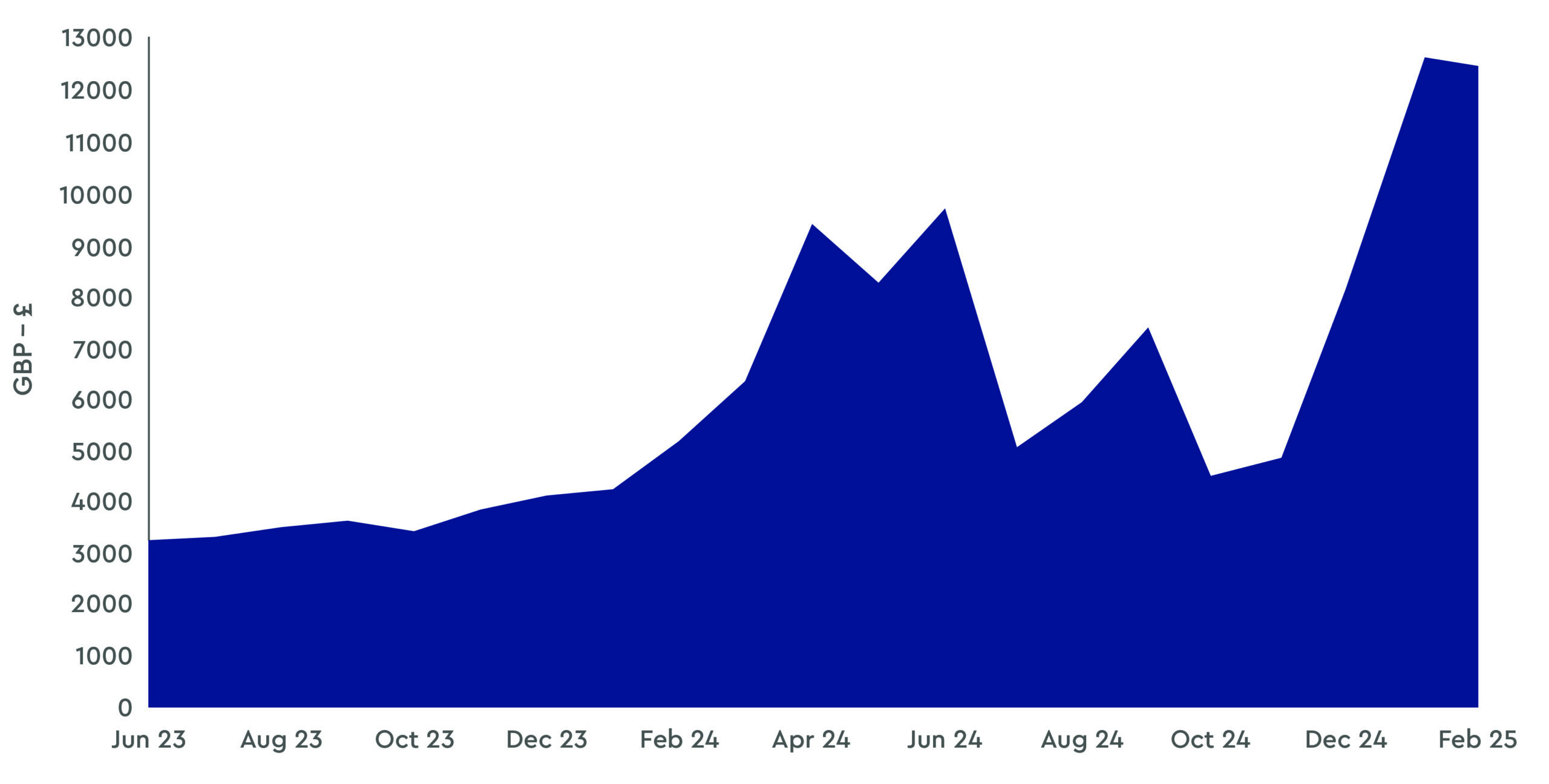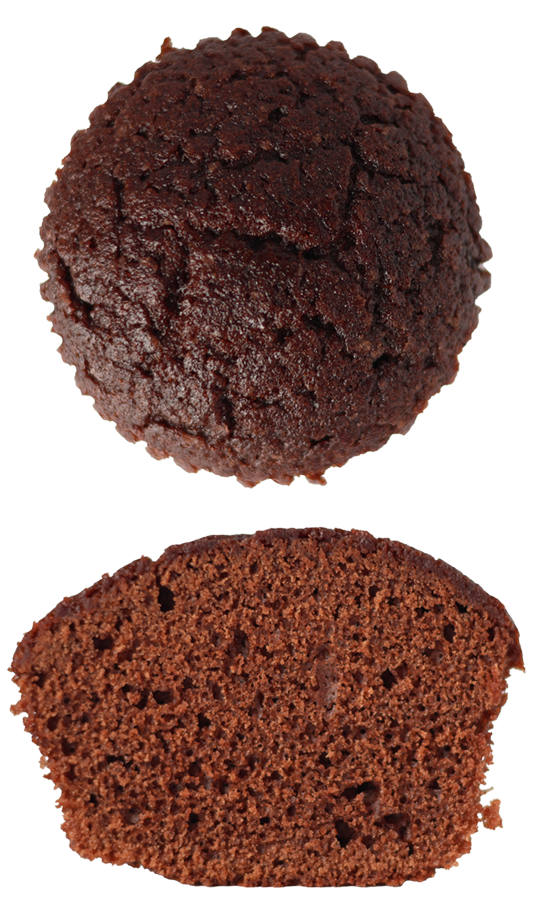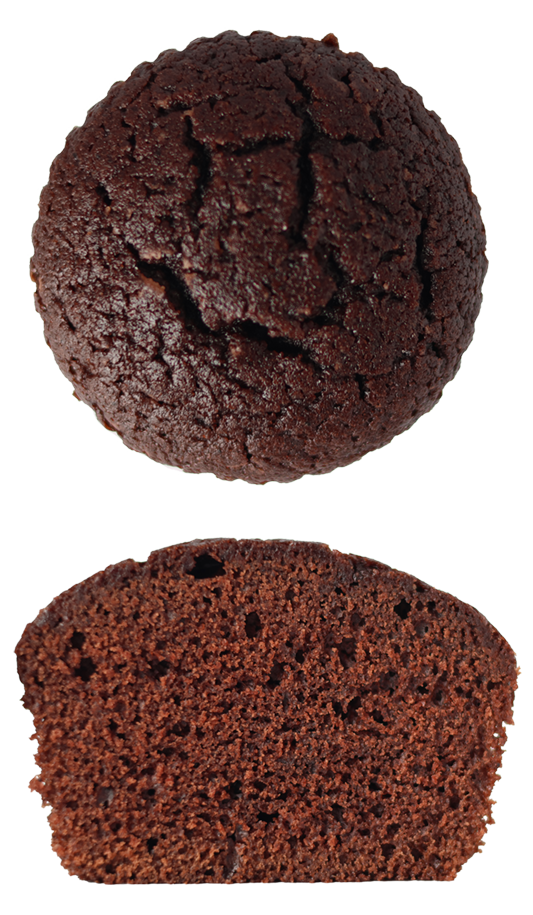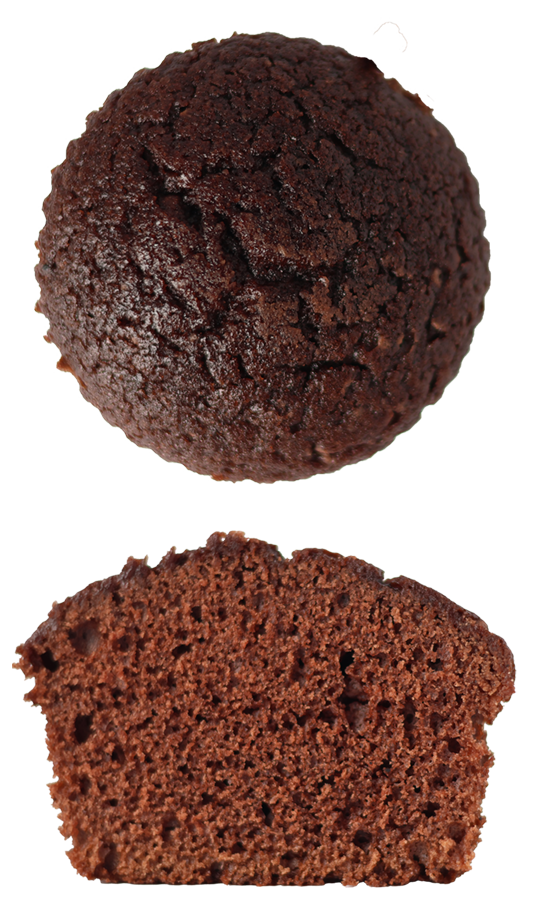Contents
Summary
In chocolate cakes and cocoa based products, customer preferences typically revolve around the flavour and colour, which predominantly comes from the cocoa powder. This emphasis on high-quality taste and appearance underscores the critical role of cocoa in meeting consumer demands.
However, in recent months, the industry has faced significant challenges due to a cocoa shortage in the leading producing countries, which has led to an increase in cocoa prices as well as supply and demand issues. Consequently, bakeries are now grappling with the task of reducing cocoa dosages in their products while striving to maintain the desired flavour and colour, making this a prominent topic of discussion and an ongoing challenge in the industry.
ZEUS™ C120 is here to help overcome these cocoa challenges, deliver optimum gas release and offer additional benefits with a simple swap of baking powder.
What ZEUS™ C120 Can Do For You
- Reduce the cocoa powder in the recipe by up to 40% through pH manipulation, which enhances the rich chocolate appearance of the final product.
- Enhance chocolate appearance and flavour when using typical cocoa dosages.
- Provide improved manufacturing tolerance by being entirely heat-activated.
- Reduce or remove costly thickeners and gums thanks to batter stability throughout the bake.
Our patented ZEUS™ C120 technology can also provide significant commercial and quality benefits for applications including pancakes, cookies, doughnuts and many more, as well as providing a phosphate-free way of leavening and aiding sustainability initiatives and goals. For further details about our ZEUS™ baking powders contact our experts.
Background
Whether it’s for a birthday celebration or as a preferred flavour, chocolate cake is a beloved bakery item enjoyed by many. It is among the top-selling cakes across the globe. However, in recent years, the cost of cocoa powder has been on the rise, increasing by over 185% from June 2023 to June 2024 with little sign of slowing down, and prices reaching all-time highs in June 2024.
While prices briefly dipped, offering temporary relief, new concerns over supply have risen due to prolonged dry spells in crucial producing areas. As a result, costs surged back to over £8697 per tonne by the end of December, impacting consumers who are now experiencing higher prices for chocolate-based products.

Why are cocoa prices rising?
This current price increase is due to limited cocoa supplies, primarily from West Africa, which accounts for two-thirds of the world’s cocoa bean harvest. Weather variability and rot-causing diseases have also contributed, leading to lower production levels and a decline in bean processing. Ultimately, this means fewer beans are being ground into cocoa.
At the start of 2024, the Ghana Cocoa Board released a report predicting that the country’s 2023– 2024 harvest would reach a maximum of 425,000 metric tons, which is a 22-year low. Unfortunately, this issue is expected to persist due to the lingering impacts on future harvests.
What can I use instead of cocoa powder?
Due to the rising prices of cocoa, manufacturers are looking at substitutes for cocoa powder. Some examples of these are malt extract, carob powder and cacao powder. However, these often affect the taste, texture and require recipe reformulations leading to long processes or customer dissatisfaction with the end product.
Challenge
The cocoa shortages mean that manufacturers are paying more for less, impacting their production costs and leading to higher consumer prices. On top of this, transport issues and increased shipping costs have exacerbated supply and demand problems, creating further challenges.
Solution
Our expert team of chemists and bakers at Kudos Blends have developed ZEUS™ C120, which can mitigate the impact of rising cocoa prices by allowing manufacturers to reduce the level of cocoa in their recipes without compromising the chocolate colour and flavour customers know and love. Equally, when cocoa powder is used at its full dosage level, ZEUS™ C120 gives cocoa-based items a darker and richer appearance.
Traditionally, bakers add extra bicarbonate to their recipes to increase alkalinity and produce a darker cocoa-based product. Although this can help with colour, it can cause significant quality issues. Due to the buffering effect of ingredients used in standard baking powders, a large quantity of bicarbonate is needed to create an alkaline environment. This results in significant levels of soluble carbonate formation in the final product, which can produce a soapy, bitter flavour. The addition of extra bicarbonate can also be detrimental to the performance of the baking powder, resulting in textural and structural issues.
ZEUS™ C120 enhances cocoa performance without these drawbacks thanks to its unique functionality. Unlike traditional baking powders, ZEUS™ C120 is an acid-free system, which not only provides excellent batter stability during production, but also creates an alkaline environment without high levels of soluble carbonate forming. ZEUS™ C120 also produces salt as it reacts, enhancing the flavour of the cocoa-based product. The result? A cocoa-based product with lower ingredient costs, better flavour and more visual appeal.
Ultimately, a simple change of baking powder can increase the chocolate intensity in both colour and flavour – or reduce cocoa dosages – all while optimising the leavening capabilities in the recipe.
1. Visual Results
Standard
baking powder –
full cocoa powder

ZEUS™ C120
Baking Powder –
full cocoa powder

ZEUS™ C120
Baking Powder –
-40% cocoa powder

From our results, using ZEUS™ C120 with less cocoa powder resulted in similar colouration for both the cake’s internal crumb and its outer surface. This colouration was quantitatively confirmed by the Delta E values, calculated using the internal crumb structure colour of the baked cakes. The results are below.
2. Delta E
| Standard baking powder – full cocoa | ZEUS™ C120 – 40% cocoa | |
| Lightness | 19.10 | 21.49 |
| A (Green-Red) | 10.84 | 11.07 |
| B (Blue-Yellow) | 11.60 | 11.56 |
| 2.40 | ||
Delta E is a metric used to quantify the difference in colour between two objects or samples.
A Delta E between 3 and 6 is usually considered an acceptable number in commercial reproduction. The lower the number, the closer in resemblance the colours are.
3. Taste Testing
To establish that our products don’t just look the part, a series of taste tests were conducted according to the following methodology:
Placed in controlled conditions to minimise bias, tasters were tasked with identifying any differences between the samples. The evaluation focused particularly on flavour.
| Samples | Appearance | Taste | Preference | Organoleptic Notes |
| Standard baking powder 100% cocoa powder vs ZEUS™ C120 -40% cocoa powder | Not statistically significantly different 38% different | Statistically significantly different 75% different | 70% preferred ZEUS™ C120 with 40% cocoa powder reduction | Sweeter More chocolatey Chocolate lingers Better texture Rich taste |
Standard baking powder 100% cocoa powder vs Standard baking powder -40% cocoa powder | Statistically significantly different 82% different | Statistically significantly different 76% different | 83% preferred Standard baking powder with full cocoa powder | Lost flavour Tougher |
Our taste testing revealed that changing the leavening to ZEUS™ C120 and reducing cocoa by 40% did not significantly alter the colour when compared to the control using 100% cocoa and a standard baking powder. However, noticeable flavour differences were detected. The batch with 40% reduced cocoa and ZEUS™ C120 was described as more chocolatey, sweeter, and possessed a richer taste. Impressively, 70% of participants preferred the version with ZEUS™ C120 and 40% less cocoa compared to the control.
In contrast, when only 30% of the cocoa was removed from the standard baking powder recipe, both appearance and flavour were significantly affected. As a result, 83% of participants favoured the standard baking powder with the full dosage.
Get in touch with our experts to find out more about how ZEUS™ C120 can help reduce your cocoa levels.









